We test the Scott Genius eRIDE 910, an e-MTB for easy climbing and fun descents
Scott has been investing heavily in the electric bike segment for some time now and a good example of this is that it has 26 models in MTB alone. We have had the opportunity to test in depth one of its most demanded e-bikes, and the fact is that the enduro and trail electric bikes have come to revolutionize the way of understanding these modalities giving us the chance to ride the trails like never before.
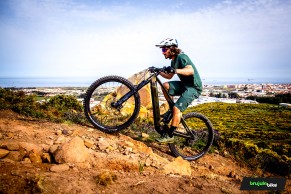
Scott Genius eRIDE 910, ready to enjoy without limits
Within Scott's electric range we have two families oriented to the Trail. The most aggressive is the Ransom, which is practically a Freeride with 180mm of travel on both wheels. And with a little more versatility but equally great enduro capabilities we have the Genius family, with 160mm of travel at the front and 150mm at the rear.
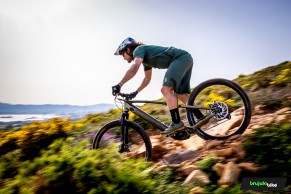
RECOMENDADO
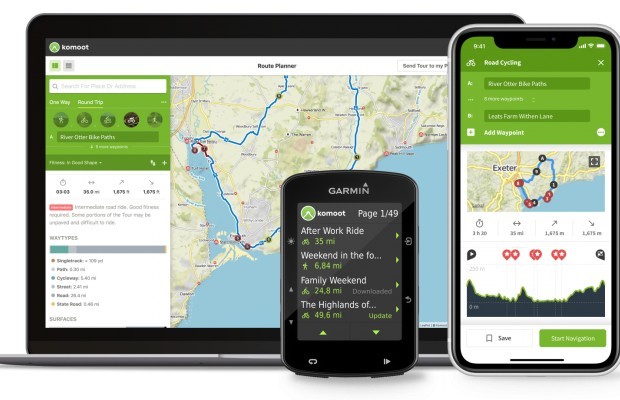
The best apps for cycling and mountain biking
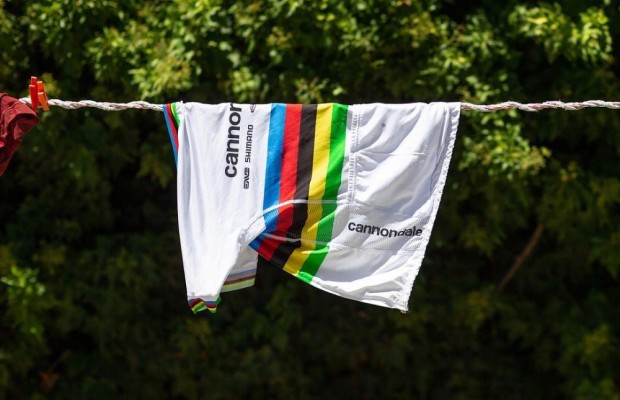
How to wash your cycling clothes? 10 keys to make them always look new
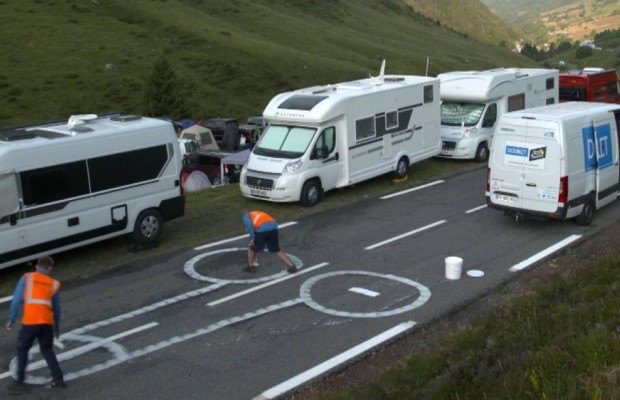
This is how they erase the penises that are drawn on the roads of the Tour de France
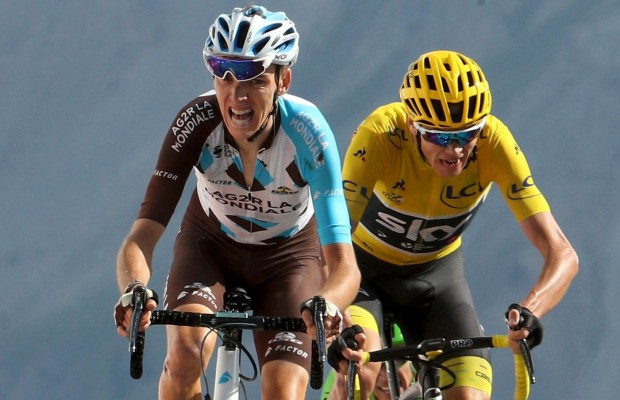
How to lose body fat? Differences between losing weight and losing fat
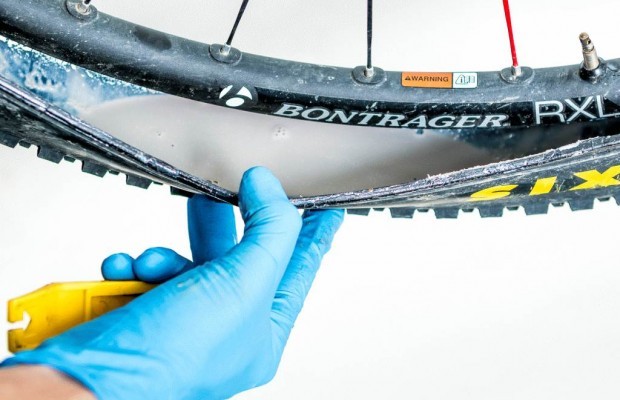
When must the tubeless tire sealant be replaced? What quantity?

Free alternatives to Zwift
Our test was with the Genius eRIDE 910, the model with the best assembly and aluminium frame. One of the most interesting features of this bike is its compatibility with both 29 and 27.5 wheels. To make the change you only have to invert a small lever that is located in the crank, where the shock absorber is anchored at the top. This way the geometry is adapted to work with the smaller wheels.
The frame has the same suspension system as the standard Genius, non-electric, but with adaptations to accommodate the motor and battery. The battery is integrated into the down tube, which has been oversized to accommodate a 625Wh battery. There is also the possibility of mounting an additional 500Wh battery attached to the frame for a total of 1125Wh.
As for the engine, it features Bosch's latest model, the Performance CX in its fourth generation. This Bosch motor has been optimised and is now 48% smaller and 25% lighter. With its latest update, it offers 85Nm of maximum torque and 340% of the power developed by the cyclist.
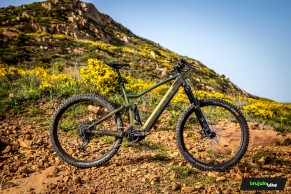
To protect the engine, the frame is fitted with an integrated Impact Damper, which provides the necessary protection against possible rock impacts, a rubber finish to reduce noise and an opening to ensure that the engine cooling is not impaired.
The geometry offered by the Scott Genius eRIDE 910 is in line with the trend of aggressive ebikes, with a steering angle of 64.8º in sizes S and M and 65º in sizes L and XL. Its saddle angle is 75.4° in S and M and 74.8° in L and XL. Its reach is generous at 440.6mm in size M and 460.7 in size L. Its chainstays are slightly longer than usual at 465mm. The result of these measurements gives us a quite long distance between axles of 1236,1mm in size M and 1258,4mm in size L.
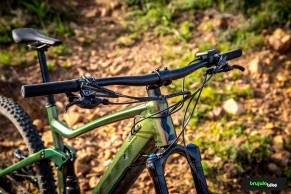
This is already a foretaste of a very stable bike at high speeds, but we'll see how it behaves when we want to move it with agility.
An assembly prepared for aggressive use
Starting with the suspension, we find at the front a Fox 36 Rhythm fork with 160mm of travel, whose chassis has a more than proven robustness and in this case has basic settings, which for most users simplifies the set-up. With a single rebound adjustment, instead of differentiated adjustments for high and low speed. In compression we have three positions that are operated through the famous Scott TwinLoc control.
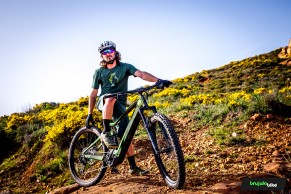
At the rear we have the Fox Nude T EVOL shock with Trunnion anchor and customised for Scott and its three modes commanded by the TwinLoc control. In this case it is not just simple variations in compression but in open mode it offers 150mm of rear travel, in the intermediate position it not only closes the compression but also modifies the positive camber to offer 100mm. The key to this is that with the variation of travel also varies the sag, slightly changing the geometry to favour pedalling and climbs. The third position is a total lockout.
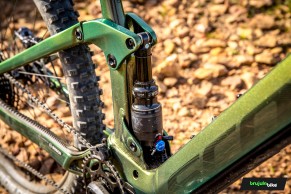
The rest of the components include the Fox Transfer telescopic seatpost which works very well, but due to the TwinLoc mounting on the left side, it mounts a control on the right side whose ergonomics we like less than the traditional trigger under the handlebar.
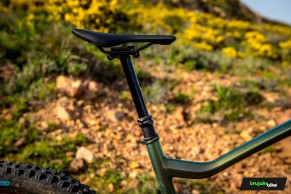
And while we're on the subject of the handlebars, and in case a knob or fork crown damages the frame, the steering system has an internal locking system that prevents it from turning more than 60º, which is very practical.
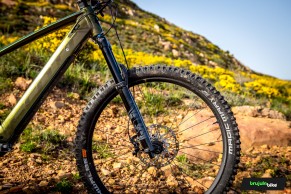
The wheels are Syncros' own brand, with an internal width of 30mm and hubs manufactured by Formula.
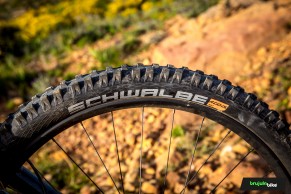
The front tyres are the famous Schwalbe MagicMary in size 2.6", the rear tyres are the Hans Dampf model of the same brand and size. Both tyres come with the Snake Skin casing, which we think is a bit weak for this type of bike, especially on the rear.
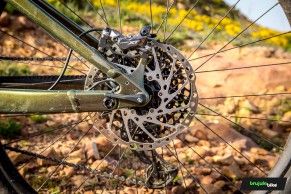
One of the strong points of the Scott Genius eRIDE 910 are its Shimano XT M8120 brakes, 4-piston brakes with extraordinary power and perfect feel, ideal for stopping a bike with these characteristics.
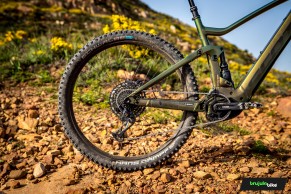
The rest of the groupset is provided by Sram with its 12-speed Eagle system combining the NX with a GX rear derailleur, which is an interesting detail as the lower range derailleurs do not have the same solidity and consistency and in this type of bike for aggressive use it is to be welcomed.
Impressions on the Scott Genius eRIDE 910
This time we tested a size L, and although it was a bit big, we soon adapted well as the position is very comfortable on this bike.
The first few kilometres were dedicated to testing the different assistance modes offered by the Bosch Performance CX engine. These assistance modes are controlled by the Bosch Purion display, which is comfortable and works perfectly despite being a basic version. Bosch has other more complete options in its catalogue with more options and information.
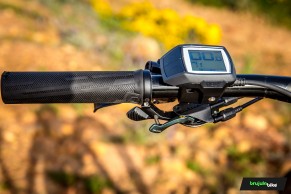
We have to say that although when pedalling without assistance the motor hardly has any friction and you don't feel the cranks braking, it doesn't make much sense to do so due to the fact that we are on a bike weighing around 25 kilos (our unit weighs 24.3 kg without pedals) and therefore it becomes quite heavy to pedal without at least the help offered by the motor in ECO mode.
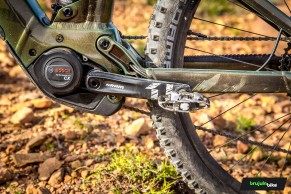
In this ECO mode the motor gives us 60% of the power that we develop with our legs, for example, if we put 100 watts on the pedals, the bike gives us an extra 60 watts and the rear wheel gets those 160 watts in total. This is up to a maximum of 40Nm of maximum torque offered by the motor in this mode.
In TOUR mode it gives us 140% of our effort up to a maximum of 50Nm, and in TURBO mode it gives us an impressive 340% and a maximum torque of 85Nm.
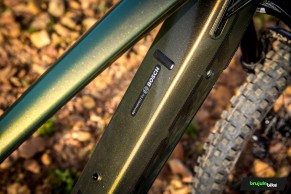
And there is a separate assistance mode that is one of the wonders offered by this Bosch motor, the eMTB mode. This mode combines the best of TOUR and TURBO, adapting itself depending on what we are demanding from the bike.
For example, climbing difficult trails in eMTB mode makes pedalling much easier, as when starting from a standstill the motor assists us as if we were in TOUR mode, which makes the bike docile and controllable in those first few pedal strokes. And when we are on the move and the terrain means that we have to push hard, the motor automatically increases the assistance depending on the need.
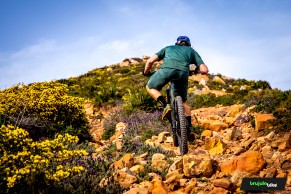
We actually use this mode a lot, especially on more enduro routes, where we alternate steep climbs with downhill trails.
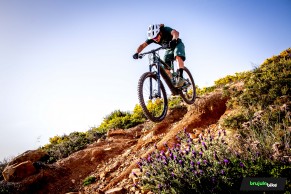
And when it comes to autonomy, it is always difficult to give concrete data. Scott claims that with the battery extender, with which we can get up to 1125Wh in total, we can do up to 160 kilometres in ECO mode.
We can say that on enduro routes with very rough terrain using eMTB mode and even TURBO on some occasions and demanding enough we have done about 40 kilometres with 1300 metres of elevation gain and we have not managed to drain the internal battery of 625Wh.
Now it's time to leave the electrical issue to one side and talk about the performance of the bike itself.
First and foremost, the Scott Genius eRIDE 910 gives us a feeling of poise and security. The way the suspension works and its stable geometry give us a lot of confidence. We found the shock absorber to be quite progressive, and we could adjust it with a generous sag, thus gaining comfort without the danger of bottoming out.
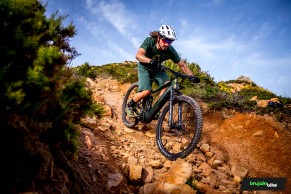
The Fox 36 Rhythm fork is more than proven, and although it is the OEM version with more basic settings compared to the Float 36, for most users it is more than enough and even preferred due to its simplicity of set-up. For aggressive and somewhat more radical use, the more advanced cartridge could be missed.
One detail that we didn't like too much is the Fox Transfer seatpost control on the right and the downward push instead of the trigger type. This is due to the fact that the left side of the bike has the TwinLoc, but we think that, considering that we have assistance, and in Trail or enduro use on trails, it would be preferable to give priority to the telescopic seatpost control.
Despite the Genius' weight and geometry, it doesn't feel clumsy going into corners, although shorter chainstays might have given it a little more agility. Where this bike does require some adaptation is when facing downhill trials. The great inertia of its weight makes it difficult to line up exactly where we would like, but the great capacity of its suspension and the bike's handling makes it pass over obstacles in an amazing way. It is, as we have said, a matter of adapting and changing the way you ride a little compared to a much lighter muscle bike.
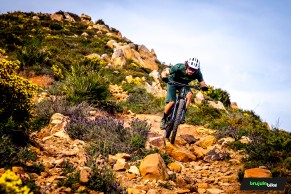
And if we continue to talk about steep terrain and aggressive use, and although the tread pattern of the Schwalbe MagicMary and Hans Dampf has proven to be the best, the user may miss tyres (especially the rear) with reinforced casing. The Schwalbe with Snakeskin casing lacks a bit of "body" for such a heavy bike, and we had to carry them with a lot of pressure to avoid rims.
We also found the 78 cm handlebars to be a little short for handling a bike of this size with authority.
That said, the Scott Genius eRIDE is not the brand's most aggressive model - that's what the Ransom eRIDE is for. The Genius is a balance between a pure trail bike with great enduro capabilities.
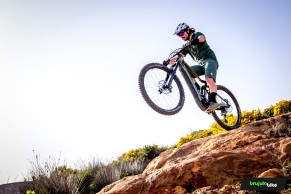
Regarding the operation of the groupset and brakes, as we mentioned before, the Shimano XT M8120 brakes with their 4-piston calipers are a marvel of feel, power and reliability. The safety they provide when stopping the bike is exceptional.
The shifting system held up with maximum precision throughout the time we enjoyed the bike, and it is difficult to find differences in operation between the Sram GX shifter and those of a higher range.
The Scott Genius eRIDE 910 is a bike that can do it all
This could be the final conclusion in summary. With the assistance provided by the fabulous Bosch Performance CX motor and the 625Wh capacity of its internal battery, we can afford to use a bike with 160/150 suspension travel for any route we can think of.
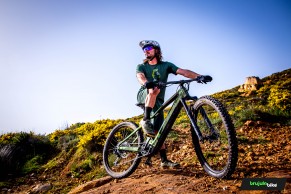
Whether it's for relaxed riding, exploring places without fear, getting into more demands than expected, or searching for trails to enjoy, this bike allows us to do it all. Even for demanding enduro use, the Genius eRIDE 910 is more than adequate.
Scott Genius eRIDE 910: specifications and price
- Frame: Genius eRIDE alloy / Virtual 4 link kinematic VLK
- Fork: Fox 36 Rhythm Air
- Rear shock: Fox NUDE T EVOL Trunnion
- Drive unit: Bosch Performance CX
- Battery: PowerTube 625Wh
- Display: Bosch Purion
- Reard derailleur: Sram GX Eagle 12 speed
- Shifters: Sram NX Eagle
- Crankset: Sram X1 1000 / 165mm / 34T
- Chain: Sram NX Eagle
- Cassette: Sram PG1230 / 11-50
- Brakes: Shimano XT / BR-M8120 4 Piston
- Handlebar: Syncros Hixon 1.5 / 12mm rise / 9º / 780mm
- Stem: Syncros FL1.5
- Seatpost: Fox Transfer 31,6mm / Size S 100mm / Size M 125mm / Size L 150mm / Size XL 175mm
- Seat: Syncros Tofino 1.5 Regular / Titanium rails
- Headset: Acros Blocklock
- Hubs: Formula
- Rims: Syncros X-30S / 32H / 30mm
- Front tire: Schwalbe MagicMary 29x2.6” / Snake Skin / Addix Soft
- Rear tire: Schwalbe Hans Dampf 29x2.6” / Snake Skin / Addix Speedgrip
- Price: 6.299€ (within the Genius eRIDE model we have 6 options, one of them specific for women, being the entry price 4,649€).